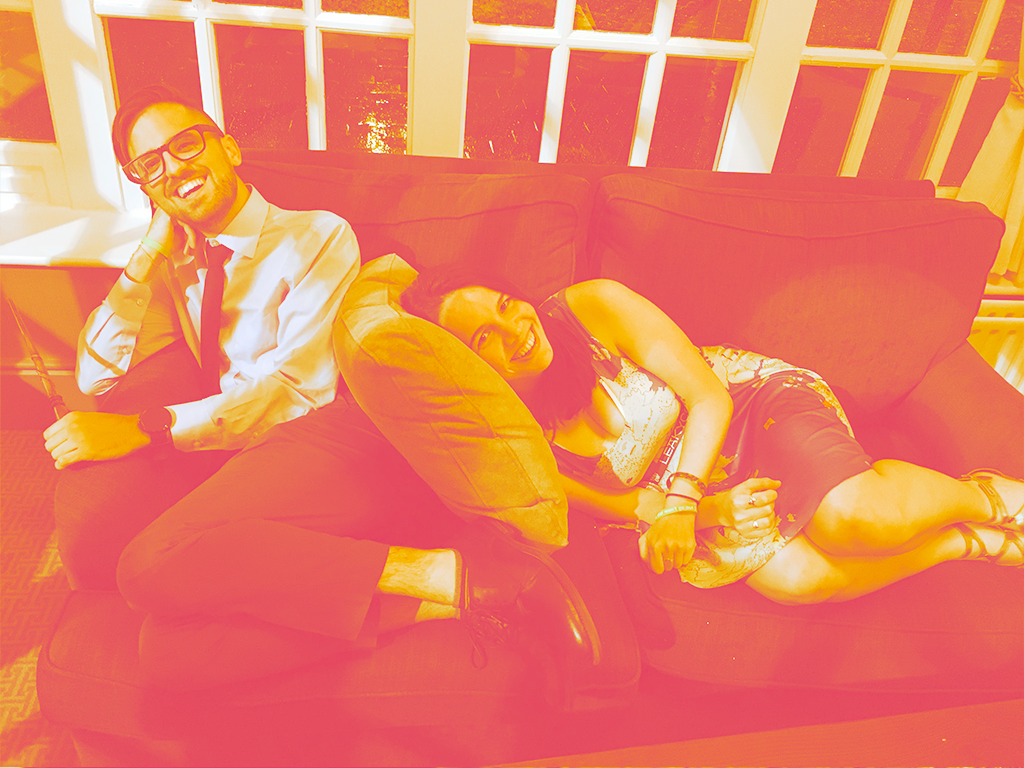Maintaining strong friendships is hard enough as an adult. Let alone when that friend is your ex-girlfriend.
When I tell people my ex and I lived together for a year and are still close, it can surprise them.
Ruth Day and I met in person for the first time in 2011. We were both at Leakycon, the scientifically proven best Harry Potter convention. It was a slow burn from there, which I imagine from the outside was a sitcom style will-they-won’t-they.
We moved in together a little over a year after we started going out, and broke up before we had even been in the apartment six months. This shook the house up a bit, as we now had four people in the house, but only two bedrooms. Which isn’t so much a problem for two couples as it is a couple and a former couple. So I moved into the office, curtained off a space to fit my bed and clothes storage in, and adopted a more minimalist lifestyle.
“I’m kind of glad we kept living together because that kind of forced us to stay friends,” Day said when I interviewed her about the subject. She mused a bit on what it takes to see friendship as a possibility between people who break up.
“We moved in together a little over a year after we started going out, and broke up before we had even been in the apartment six months.”
“Just because you wouldn’t work as a romantic relationship forever doesn’t mean the person isn’t a good person and isn’t worthy of your friendship,” she said. “There’s a reason you started dating in the first place and that was because you thought they were a cool person and wanted to see if it would work as a relationship. Just because that experiment failed doesn’t mean the friendship has to fail.”
The silence leading up to the breakup both made it stressful and made the fall out that much easier. The two of us hadn’t had a meaningful conversation in that time. When I confronted her about it, I knew what breaking the silence could mean.
“I was just going through so much in my own head and in my own psyche that I just neglected to talk to you,” Day commented.
The simplest explanation is that we confronted each other when we both no longer were in love, but we hadn’t had enough time to feel trapped or bitter about it.
“You were definitely the more mature person in that situation” she said in a mocking tone she claimed was not mocking.
This isn’t to say it was easy for me. To go from a specific kind of intimacy to still being in the same place took some getting used to.
“There’s a reason you started dating in the first place and that was because you thought they were a cool person and wanted to see if it would work as a relationship.”
Months later at Vidcon, a YouTube convention in California, marked a big shift in our relationship. During a night of partying after the convention with friends we broached the topic. Our friend Chelsea was deeply curious about the situation, and how we were handling it. As we discussed this, without the fear of losing what was already gone, we were able to become close again.
“[I was] unsure about how you felt, unsure about what other people would think,” Day said. “Unsure about if we were supposed to keep living together slash supposed to keep being friends. So many ‘supposeds’ instead of just saying f— it and being ourselves and doing whatever we thought was right.”
Not long after this, my current girlfriend Ashley and I began dating. In an extra twist to a socially strange relationship, she and Day have since become good friends. Ruth then fled to England, ostensibly to get her Master’s degree. Ashley later visited and they roomed together for a week, which is always a fun bit to add when I tell this story at parties.
“Me and Ashley weren’t that close beforehand,” Day said. “I feel like having dated the same person has made us closer.”
“So many ‘supposeds’ instead of just saying f— it and being ourselves and doing whatever we thought was right.”
Chelsea also wasn’t the only one curious about what causes people who break up to remain friends either.
Dr. Lisa Welling is a psychology professor at Oakland University who specializes in romantic relationships. In 2016, Dr. Welling and Justin Mogliski conducted a study to determine what factors were the most prominent to determine post-romantic friendship.
Their first sample of 350 people determined 150 unique reasons why people choose to remain friends after breaking up. In the second phase of 500 participants who were friends with exes, they had them rate those reasons as well as give personality descriptors.
This analysis led to seven general categories: reliability/sentimentality, pragmatism, continued romantic attraction, positive practicality, diminished attraction, social relationship maintenance, and sexual access.
Reliability/sentimentality were by far the most common, though they did find that men were more likely to rate pragmatism and sexual access higher. Day frustratingly states many people have responded with assumptions to our story, believing that these are the only reasons a man would stay friends with a woman after a break up.
“Men were more likely to rate pragmatism and sexual access higher.”
There was a correlation to people with “dark personality traits” and those who chose reasons like practicality or sexual access, Dr. Welling felt this aspect was overblown by the media.
“The first media outlet to report this reported it incorrectly,” Dr. Welling said when I interviewed her. “They reported it as ‘if you are friends with an ex, you might be a psychopath.’”
Dr. Welling felt that this snowballed from there and that subsequent outlets may not have read the actual study.
“To be clear, just because you are friends with an ex, doesn’t mean you are a psychopath per se,” Dr. Welling said. “We just find that the darker personality traits predict those reasons why you decide to stay friends with an ex-partner.”
Dr. Welling is working on a follow-up to the original study, where she hopes that with new participants she can interview both exes to get more perspective on the relationships.
“To be clear, just because you are friends with an ex, doesn’t mean you are a psychopath per se.”
She added that in her research she found studies that indicated people who start as friends were more likely to remain friends after breaking up, so perhaps this situation isn’t as uncommon as we believed. Though she did clarify the post-breakup living situation might still be unique.
When you’re dealing with friendship in the aftermath of a romance, it’s hard to say how to make it work. You definitely have to want it to work.
“Take a step back and ask yourself why you were dating them in the first place,” is Day’s advice on where to start. Having seen where that leads, I’m apt to agree with her.
Robert Beiler is a freelance journalist based in Pennsylvania who loves technology, self-improvement, and the macabre. For more from Robert, visit his website.



2 comments on “Staying Friends With An Ex-Girlfriend”